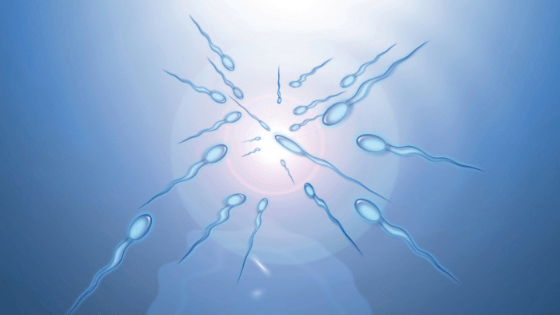According to the CDC, thirty percent of woman who are aged between forty and forty-four will experience infertility. Once you’ve passed the forty mark, your chances of conceiving become significant lower. Statistics show that a forty-year old has a mere five percent per month chance of getting pregnant. This means that even when woman who are successful at conceiving, it will take longer than usual.
For comparison purposes, a thirty-year old has a twenty percent chance of conceiving each month. For women who are aged fifteen to thirty-four, 7 to 9 experience infertility and women aged thirty-five to thirty-nine are infertile twenty five percent of the time.
It is possible to fall pregnant after forty but the likelihood of having trouble conceiving is a real possibility. After turning forty-five it’s almost impossible to conceive with your own eggs.
***Disclosure -The links in this post may contain affiliate links and I may receive a small commission if you make a purchase after clicking on a link.***

Miscarriage
Another consideration to think about is the high rate of miscarriages that occur when women are over the age of forty. About thirty-four percent of pregnancies result in miscarriage for women aged forty to forty-four and fifty-three percent for women over the age of forty-five. Despite the statistics, many women fall pregnant and manage to go full-term without having a miscarriage. While it is best to try to conceive before turning forty, if you are looking to get pregnant and you are already forty years of age, it is still possible to have a baby.
Having trouble to conceive
When you’ve already turned forty and you’re worried that you may have waited too long, then you should know that more and more women are delaying bearing a child until later in life. This may be that they are more financially secure or they may feel emotionally more ready to raise a child. Unfortunately, fertility rates among older women are decreasing.
Getting pregnant can become trickier as our bodies age as opposed to be in your teens or twenties. Many couples look into IVF (in vitro fertilisation) to help them conceive when the wife is in her forties. If you are struggling to conceive naturally contact a fertility clinic for professional advice.
Fortunately fertility treatment has come a long way in recent years, resulting in more successful pregnancies. Treatments are now less invasive, safer and more cost effective. Check out this IVF pregnancy calculator which will give you an estimated due date for your baby depending on the type of IVF treatment that you choose.
However, there are certain lifestyle choices that every woman should think about if she wants to boost her fertility over 40 as well as giving life to a healthy baby.

7 Ways To Boost Fertility Over 40
-
Make sure you are sexual
It is vital to have sex at least every other day during the fertile window. Make sure you are familiar with your menstrual cycle and keep note of your ovulation dates. The likelihood of falling pregnant is more pronounced if you’re having sex within a day or so of ovulation. Generally, ovulation occurs within fourteen days after the first day of your last menstrual cycle.
-
Implement healthy eating into your diet
Being overweight can seriously disturb your chances of conceiving. Women with a BMI of more than 30 will face challenges to conceive therefore it is essential to follow a healthy diet with lots of fruit and vegetables to maintain a healthy weight. Make sure you’re cutting out processed foods to better your chances of falling pregnant as well as improving the health of your unborn baby.
-
Make sure you’re taking pre-natal vitamins
Folic acid and Vitamin D are both recommended for encouraging development of the fetus. If you are following a vegan or vegetarian diet, you may need to have your vitamin B12 and iron levels checked as it can be tricky to maintain adequate intake by just following your usual diet.
-
Take note of the changes in your body
The thyroid plays a vital role in regulating our metabolism. If you are suffering from an diagnosed thyroid disorder, it can have a negative effect on you trying to conceive. Some of the symptoms of thyroid disorder include:
- Mood and weight fluctuations
- Sensitivity to hot or cold
- Skin dryness
- Palpitations
- Fatigue
If you notice any of these changes in your body, you may need to consult with your GP to order a blood test.

-
Steer clear of alcohol
Many women understand the importance of avoiding alcohol when pregnant, but did you know that alcohol can also influence your ability to conceive? Recent research performed at the American Society of Reproductive Medicine has concluded that drinking three glasses of wine during a week can have a significant effect on the success of a couple conceiving and this goes for both women and men.
-
Stop smoking
It’s pretty obvious that smoking is not advisable during pregnancy but recent studies also revealed that tobacco has an adverse effect on birth rates in general. Women who are looking to conceive at a later stage in life, it’s worth noting that women who are smokers are most likely to reach menopause two years earlier on average than women who are non-smokers.
-
Avoid strenuous exercise
While mild exercise is good for overall health and for losing weight, excessive or strenuous exercising can affect your menstrual cycle. Women who are trying to fall pregnant needs to be aware of this deciding factor when they are looking to follow helpful steps in order to further their chances of conceiving.
Pregnancy after 40
There are certain risks associated with pregnancy and birth which are more pronounced with older women according to the American College of Obstetricians and Gynecologists.
These risks include:
- Gestational Diabetes
- Preeclampsia
- High blood pressure
- Premature labor and birth
- Cesarean birth
Babies who are conceived by women who are older than forty are also at risk of certain congenital disorders. This is also the case with the male partner being forty or older. Prenatal screening and testing can be done to check for some of these diseases.
Advantages of having a baby when you’re 40
There are benefits associated to having a baby when you’re older.
Some of the pros are:
- Having a stable income and being more financially secure.
- Already have an established career which means you can spend more time with your child or children.
- You have more patience which comes in handy when you’re raising a toddler.
- You can do all the exploring and activities that don’t include kids while you’re young and focus on family life when you’re older.
 Kaboutjie SA Mommy Blogs by Lynne Huysamen
Kaboutjie SA Mommy Blogs by Lynne Huysamen






Wow this is perfect, most important tips.
Thank you for these helpful tips! I am 36 and not pregnant yet, so I love to read about other women’s experiences and advise! xx
I had no problems falling pregnant in my thirties, I hope you don’t struggle.
This is really helpful and will keep it in mind for when those years come and I we wish to have another little one. 🤗